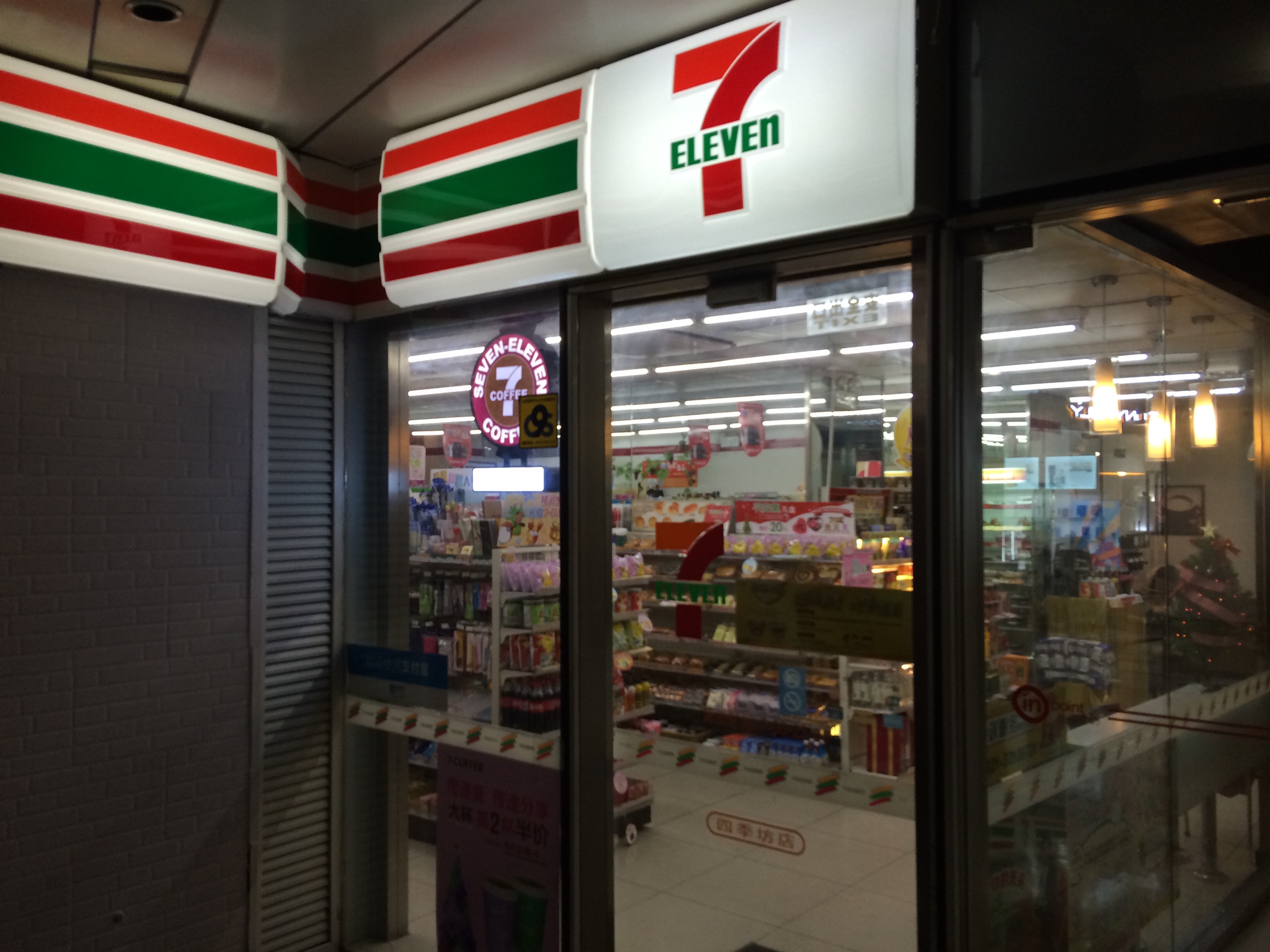 Last night, I walked in to the 7-Eleven around the corner from my apartment in Jing’an only to find all the clerks wearing Coca-Cola Santa hats and The Waitresses’ “Christmas Wrapping” playing. Felt like home.
Last night, I walked in to the 7-Eleven around the corner from my apartment in Jing’an only to find all the clerks wearing Coca-Cola Santa hats and The Waitresses’ “Christmas Wrapping” playing. Felt like home.
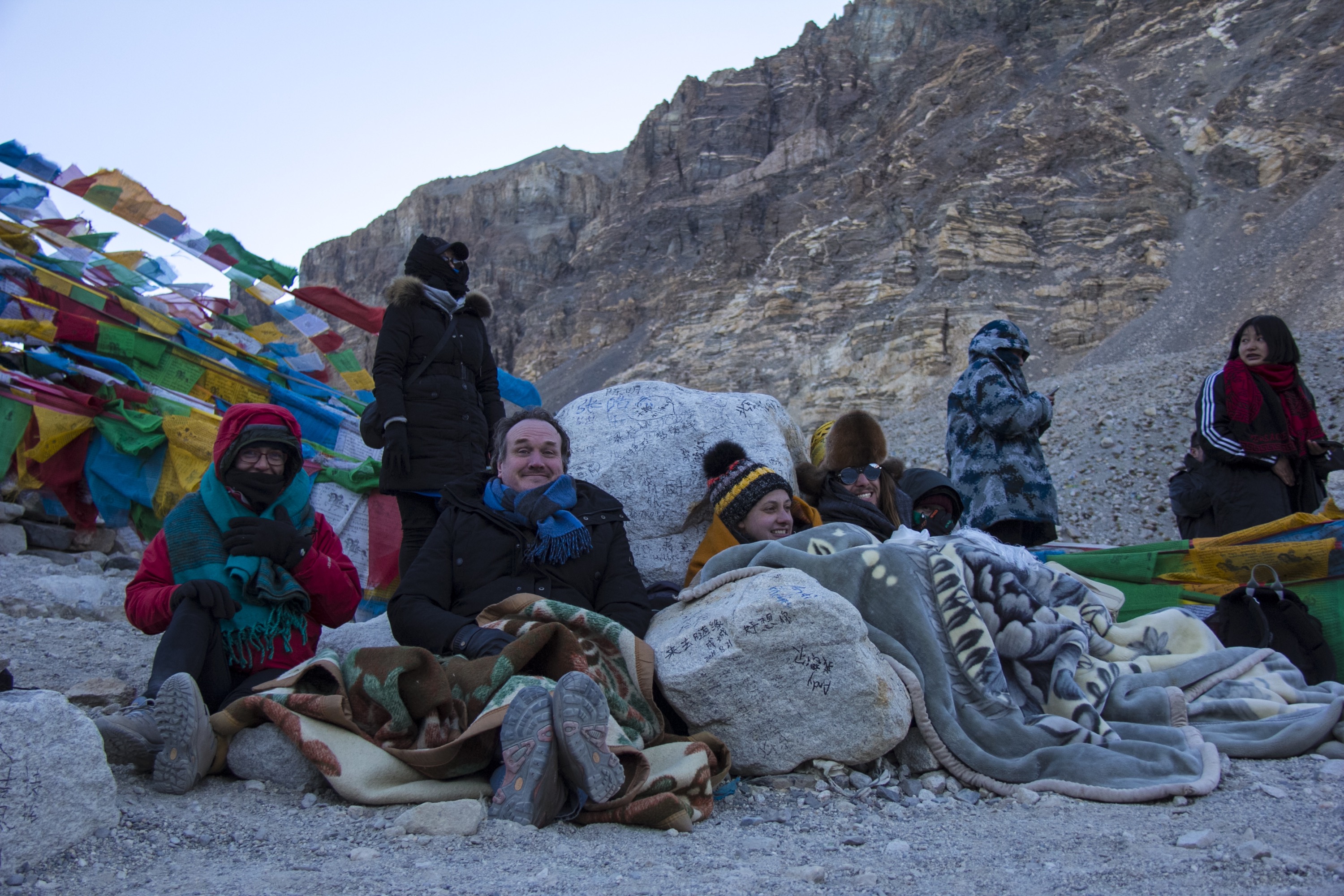 Debbie just sent me this reverse angle of me and that Australian tour group we kept crossing paths with as we all watched sunset at Mount Everest.
Debbie just sent me this reverse angle of me and that Australian tour group we kept crossing paths with as we all watched sunset at Mount Everest.
On the left in red is Rachel from Australia, standing over my shoulder is their Tibetan tour guide Kandol, behind the rock is Liz from Seattle, wearing the furry Tibetan hat is Josh on his gap year after university in Australia, that tiny wisp of a face under the black hood is Tanya from Switzerland, and the other two people milling around in the background were a couple of Chinese tourists (who seemed remarkably uninterested in the mount, the sunset, or any combination of the two.)
“Skies change, not cares, for those who cross the seas.”
–Seamus Heaney “Flight Path”
 Sometimes I sympathize with the Shanghai Tower. After getting the “white giant discount” visiting M50, Debbie captured this shot of me standing next to an are-you-fucking-with-me doorway. It reminded me of a few other Shanghai photos.
Sometimes I sympathize with the Shanghai Tower. After getting the “white giant discount” visiting M50, Debbie captured this shot of me standing next to an are-you-fucking-with-me doorway. It reminded me of a few other Shanghai photos.
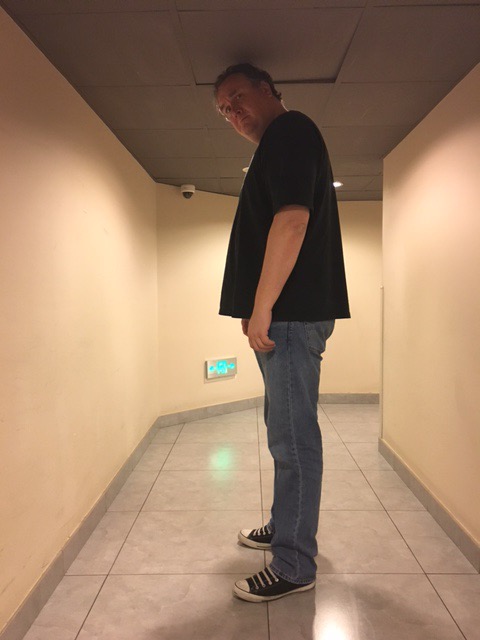 This is me exiting the theater at the IAPM mall after seeing Fantastic Beasts and Where to Find Them. Nothing makes me feel more like Hagrid than leaving a Harry Potter movie and bumping my head against a ceiling tile.
This is me exiting the theater at the IAPM mall after seeing Fantastic Beasts and Where to Find Them. Nothing makes me feel more like Hagrid than leaving a Harry Potter movie and bumping my head against a ceiling tile.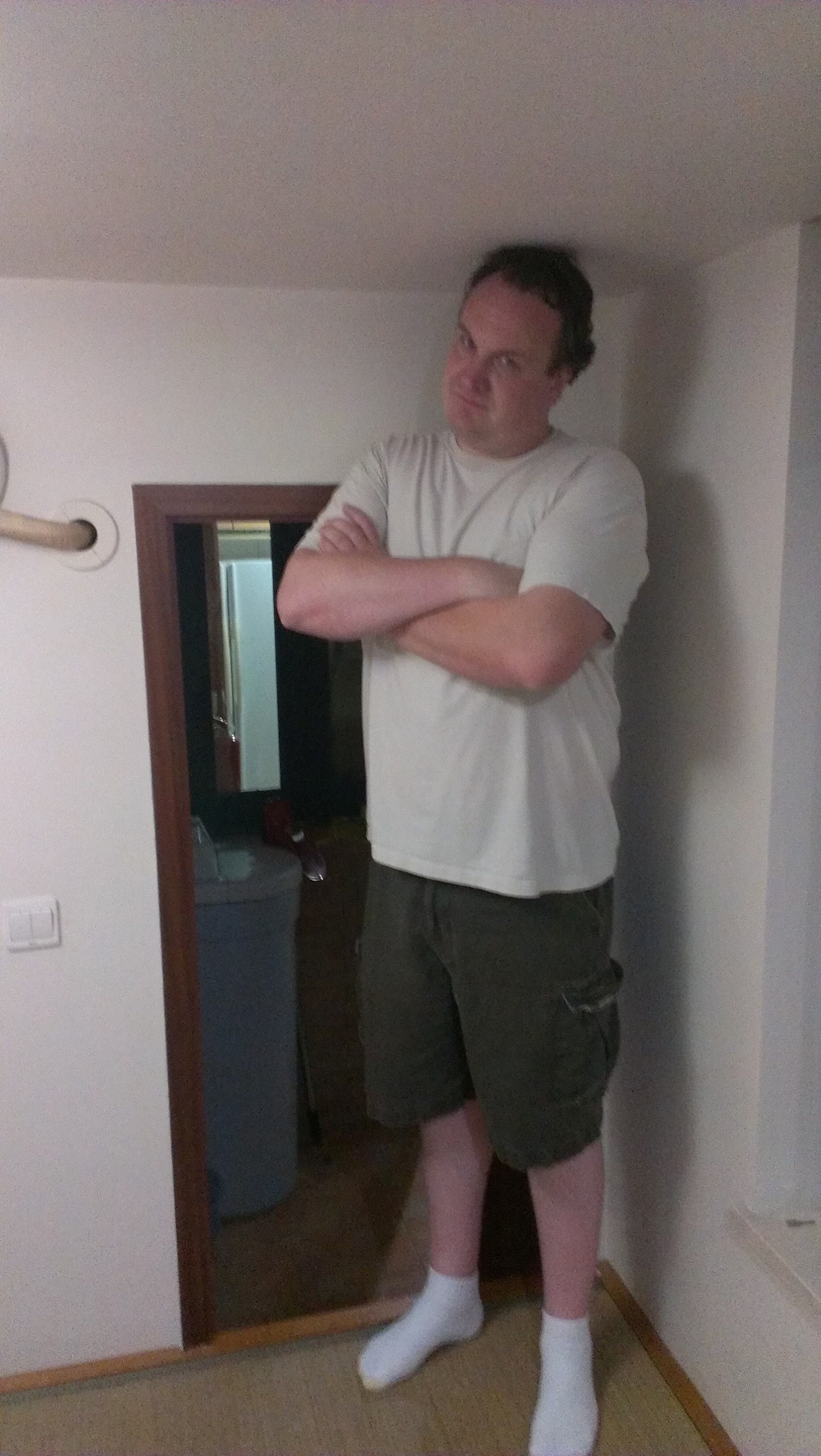 And this is from my first trip to Shanghai back in 2013, standing in the “ai’s room” (maid’s room) in my co-worker Carol’s apartment.
And this is from my first trip to Shanghai back in 2013, standing in the “ai’s room” (maid’s room) in my co-worker Carol’s apartment.
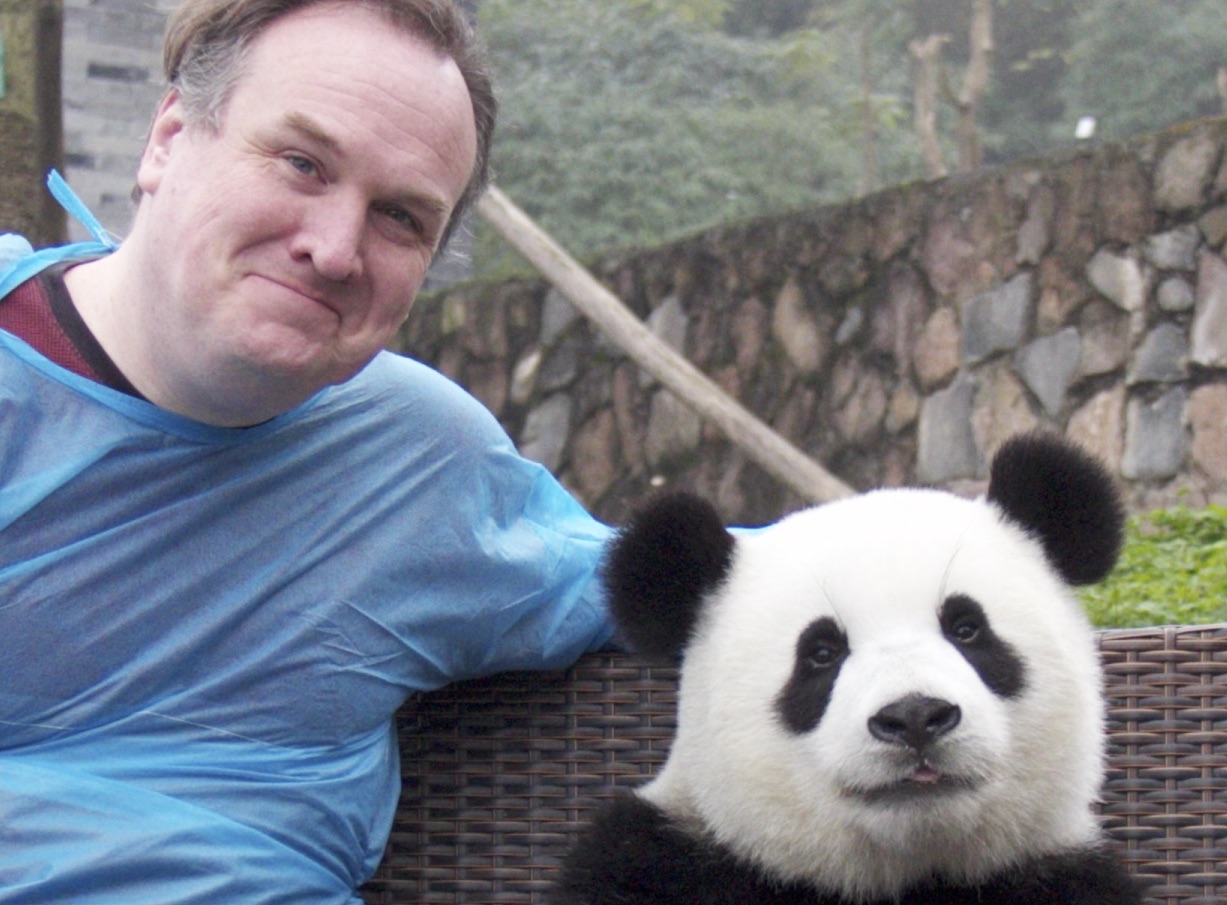 A year ago — on the epic tour of China I took Debbie on through Datong, Xi’an, and Dujiangyan — we splurged on an absurdly expensive opportunity to take one-on-one pictures with a young panda at a different Panda research facility.
A year ago — on the epic tour of China I took Debbie on through Datong, Xi’an, and Dujiangyan — we splurged on an absurdly expensive opportunity to take one-on-one pictures with a young panda at a different Panda research facility.
We were required to wear plastic gowns and gloves. We were told not to touch their ears or faces because they are very sensitive. “Are there any questions?” the young researcher asked after telling us all the rules. “Oh my God, so many questions,” I replied. “What is a panda?”
She was very confused.
The panda got it, though. He was cool.
On this year’s trip to Chengdu on our way to Tibet, we noticed this article in the China Daily: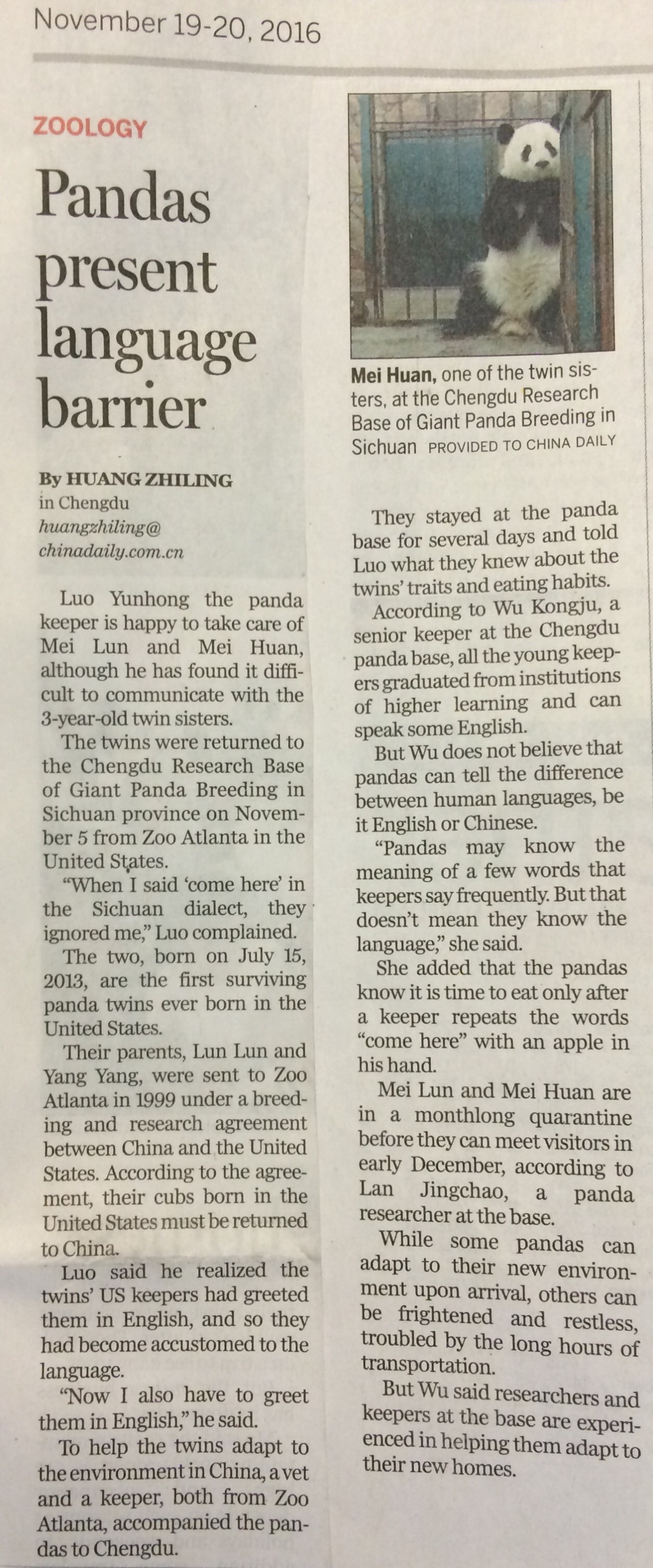
 I can’t believe I never got around to posting this! On our trip to Dujiangyan, Debbie and I visited a Panda research facility.
I can’t believe I never got around to posting this! On our trip to Dujiangyan, Debbie and I visited a Panda research facility.


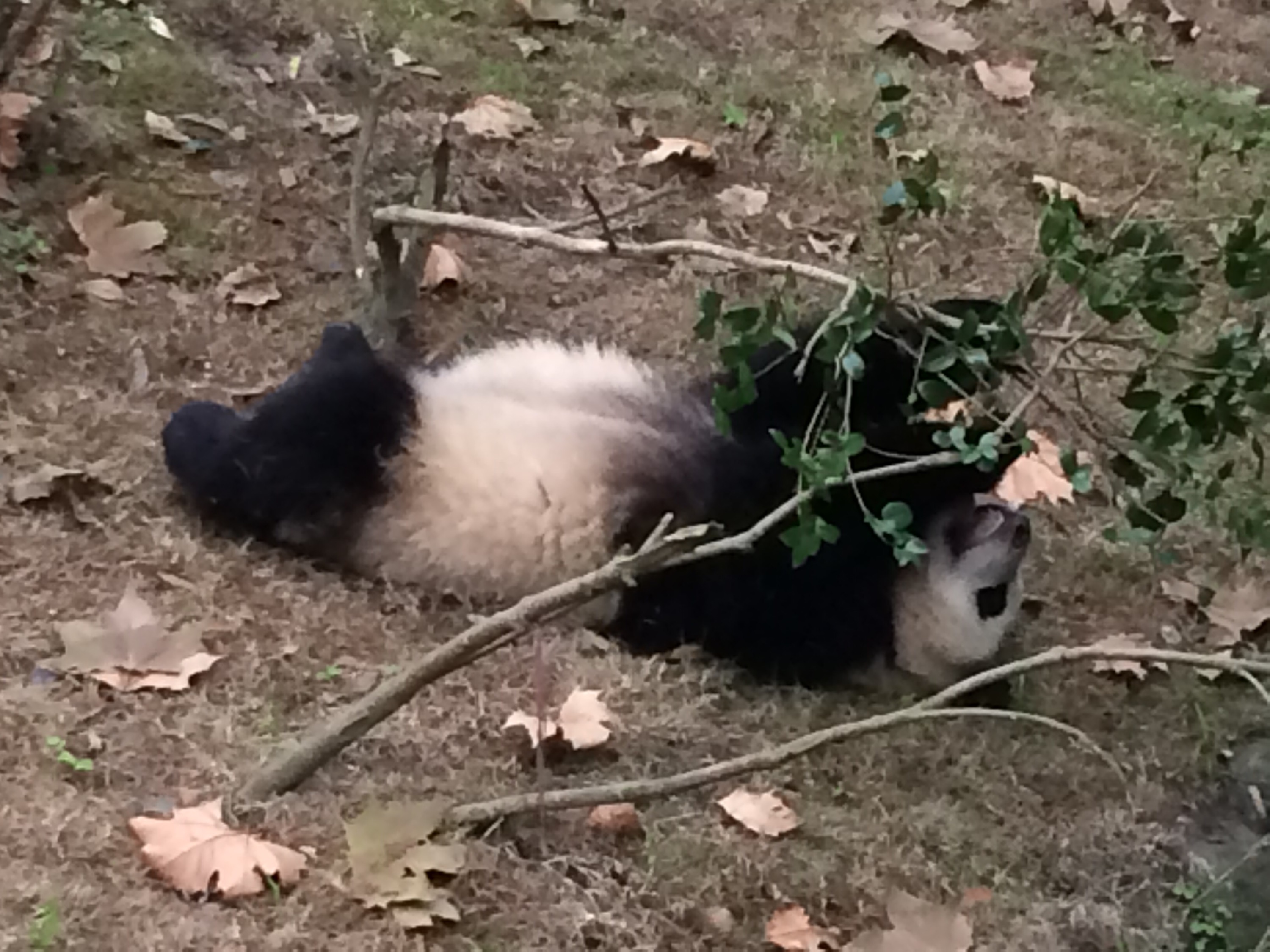






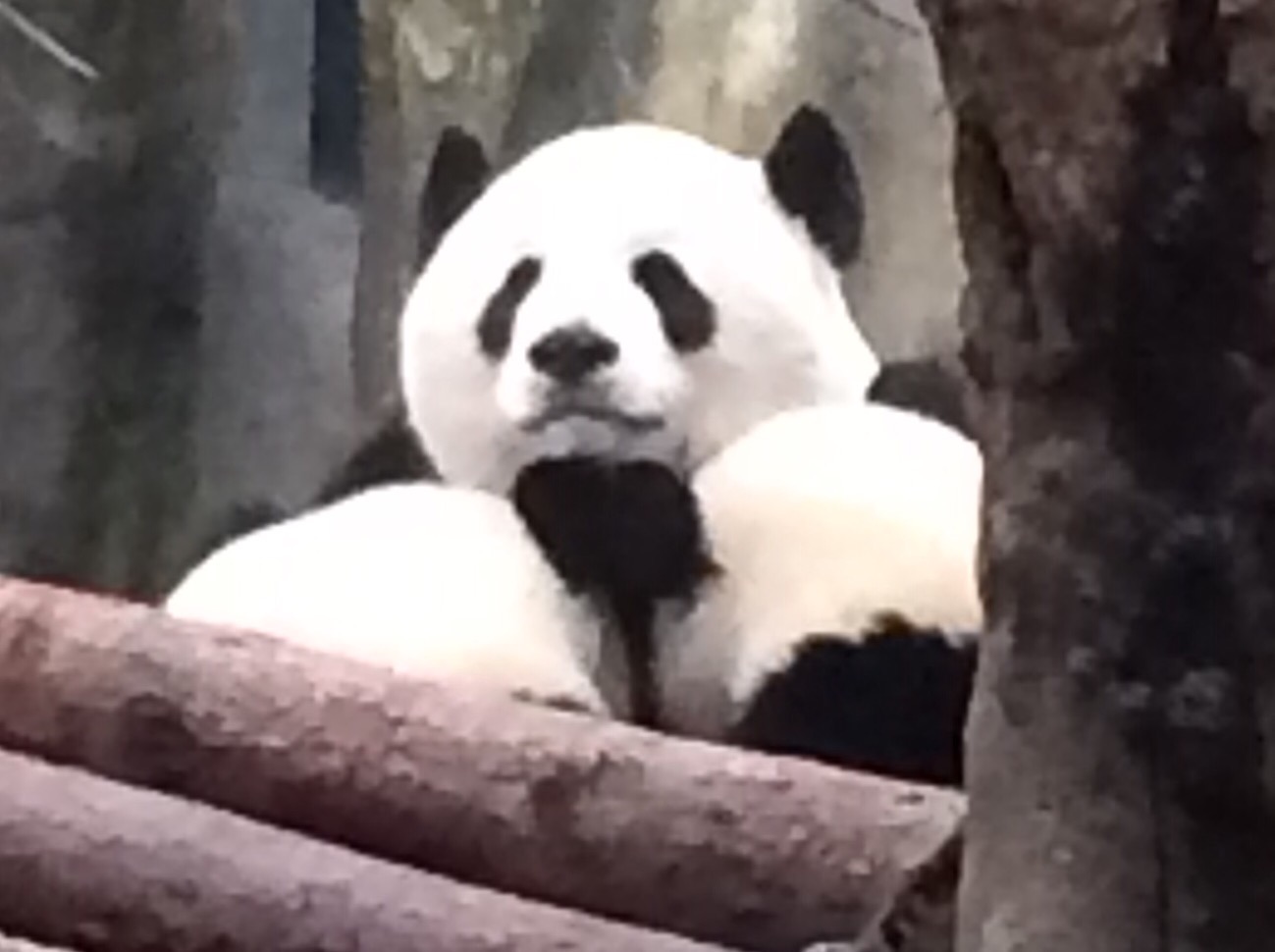

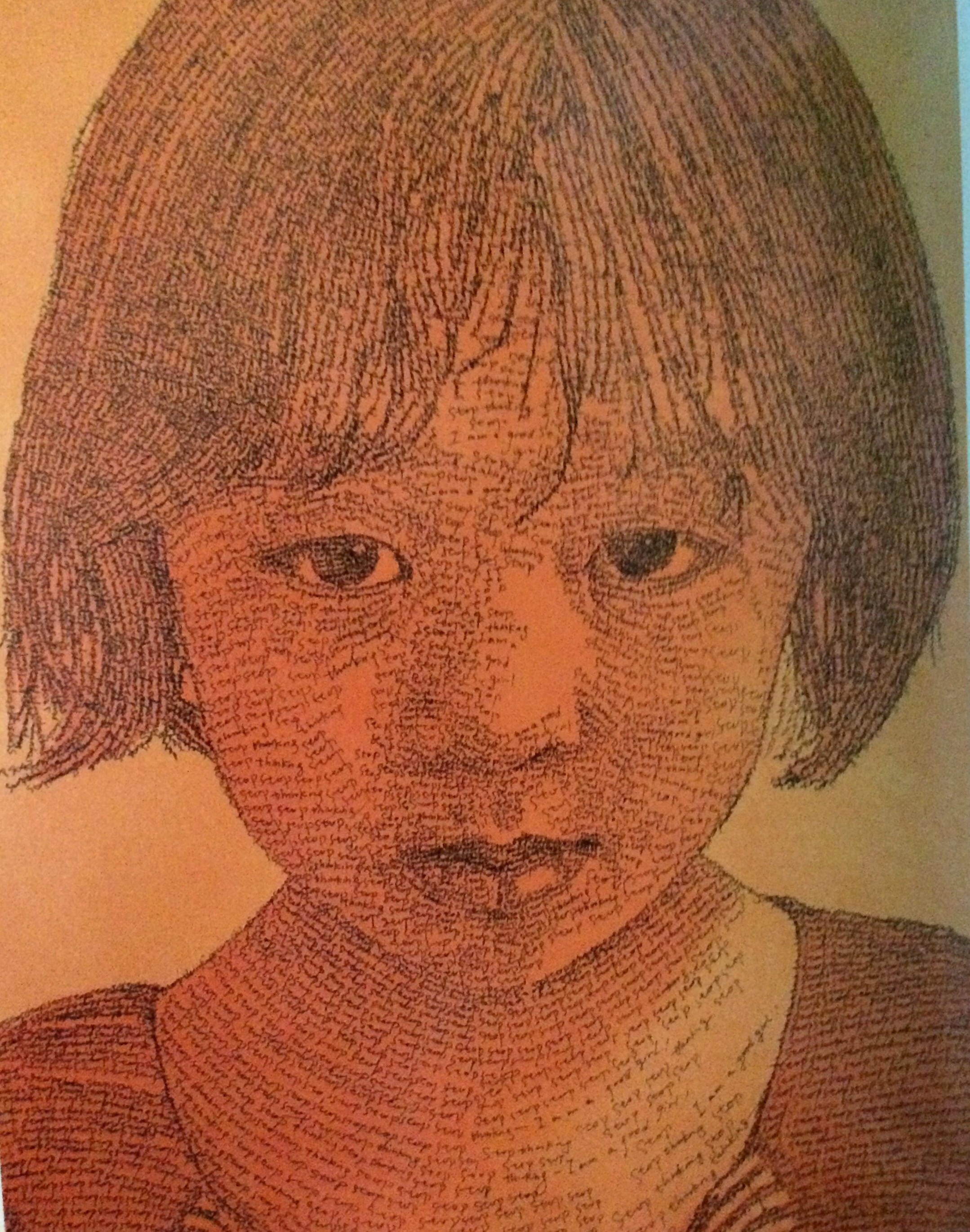 There was one artist at M50 that Debbie and I especially enjoyed, a charming local artist named 韦萍 (Wei Ping, but goes by “Sunny” in English) who does large scale portraiture (and some landscapes) using the words “stop thinking” handwritten over and over and over again. Other words — almost hidden — are thrown in seemingly at random and are often the title of the piece. This one was named “I am a good girl.”
There was one artist at M50 that Debbie and I especially enjoyed, a charming local artist named 韦萍 (Wei Ping, but goes by “Sunny” in English) who does large scale portraiture (and some landscapes) using the words “stop thinking” handwritten over and over and over again. Other words — almost hidden — are thrown in seemingly at random and are often the title of the piece. This one was named “I am a good girl.”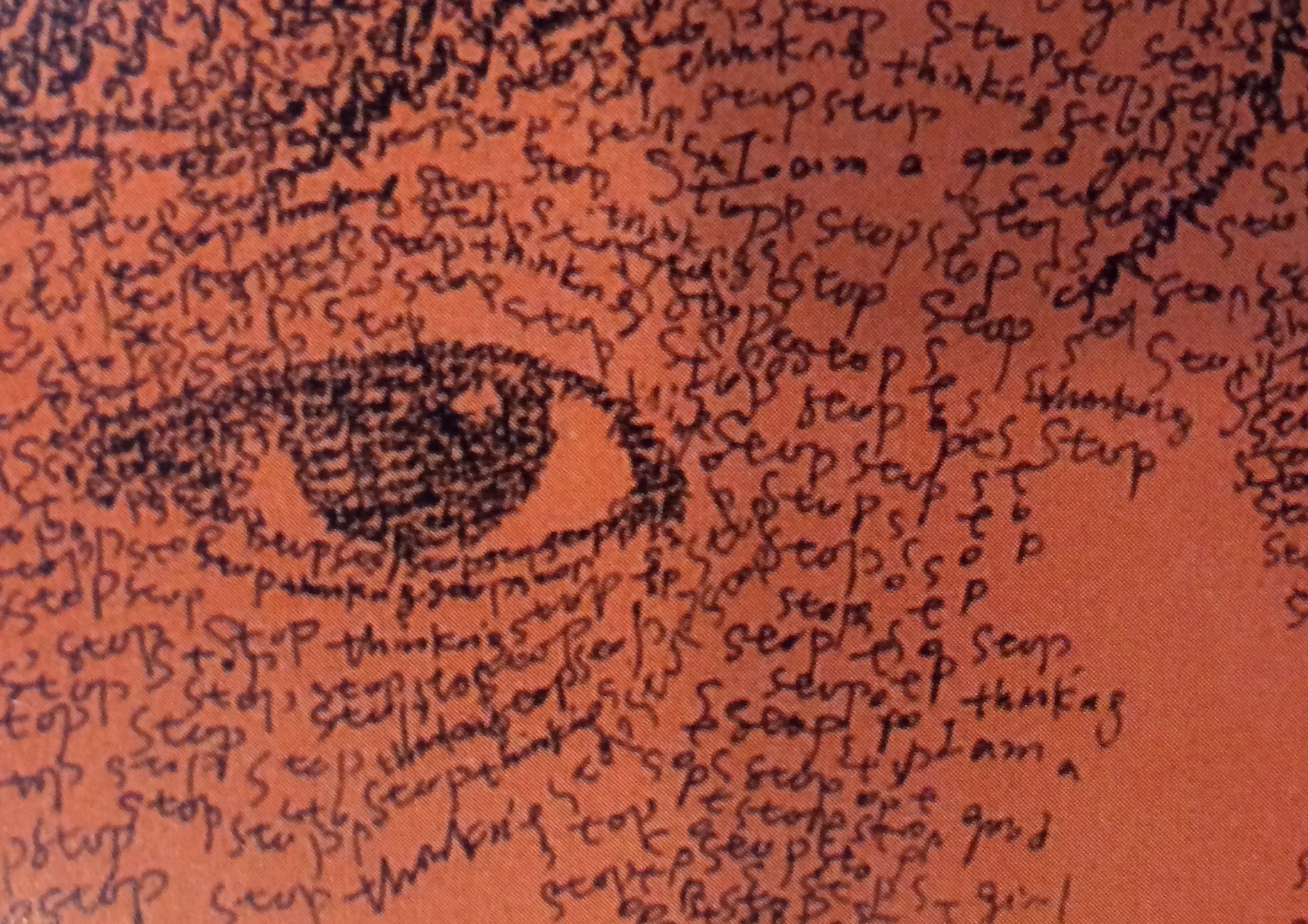 I also loved a piece she did of the Pudong skyline using the Chinese characters for “Shanghai” (上海) which made it look almost like handwritten ASCII art (although, technically, I suppose it would be Unicode art.)
I also loved a piece she did of the Pudong skyline using the Chinese characters for “Shanghai” (上海) which made it look almost like handwritten ASCII art (although, technically, I suppose it would be Unicode art.)
She gave me a “白巨人 discount” (bái jùrén meaning “white giant”!) More of Sunny’s work can be found at her website: sunart108.com
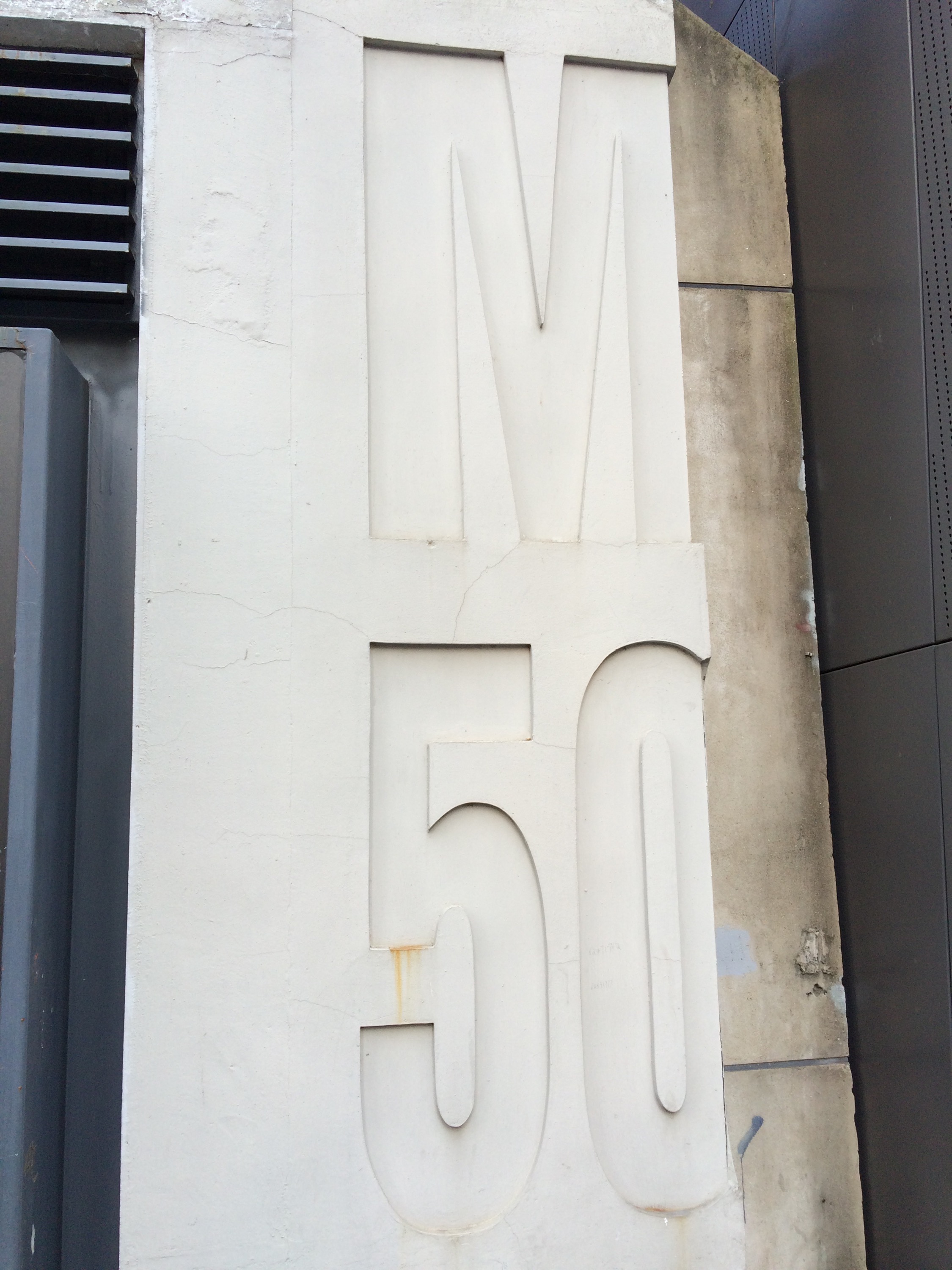 There is a complex of art galleries called M50 just north of where my apartment is in Jing’an. I’d never heard of it.
There is a complex of art galleries called M50 just north of where my apartment is in Jing’an. I’d never heard of it.
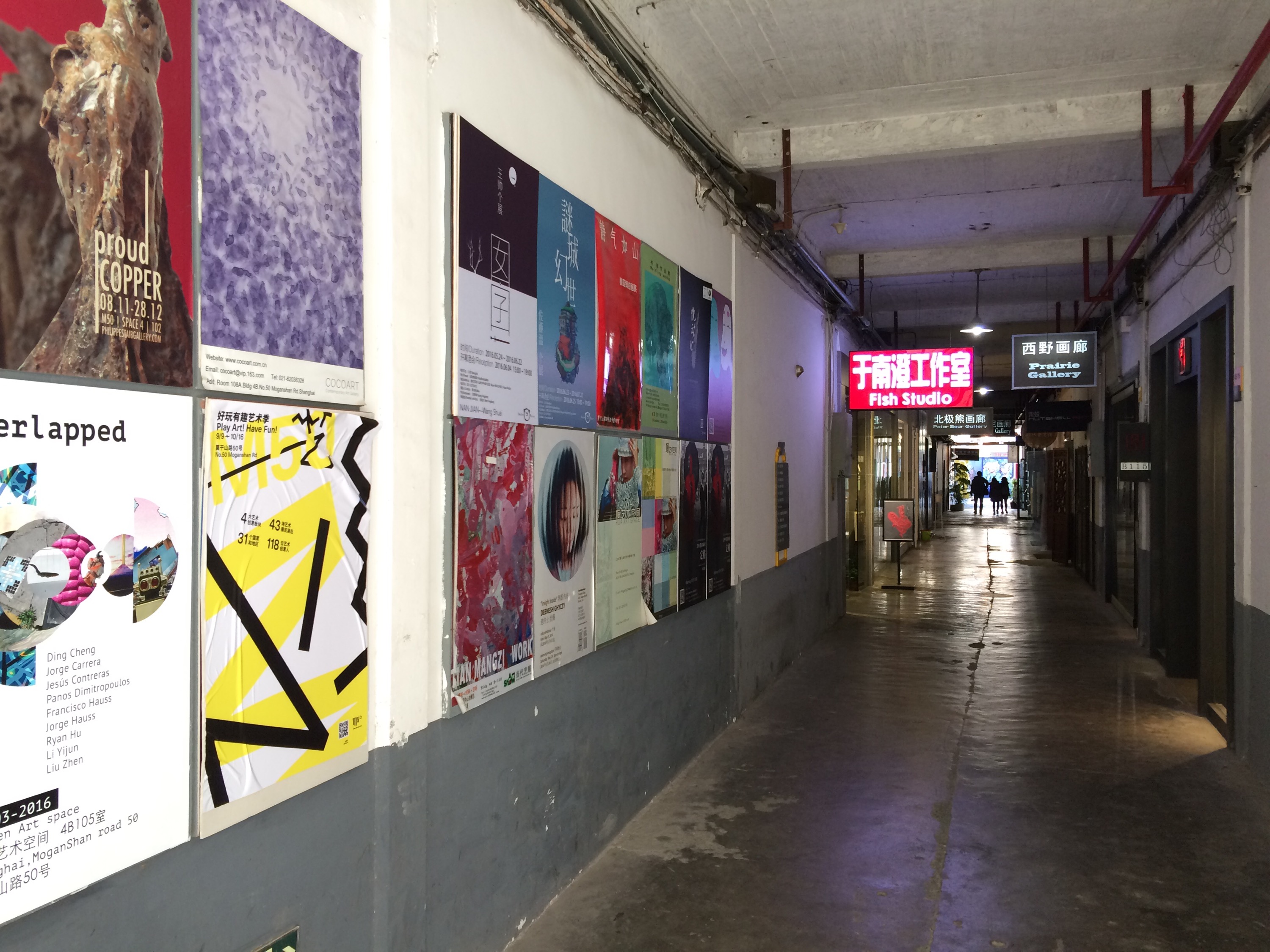
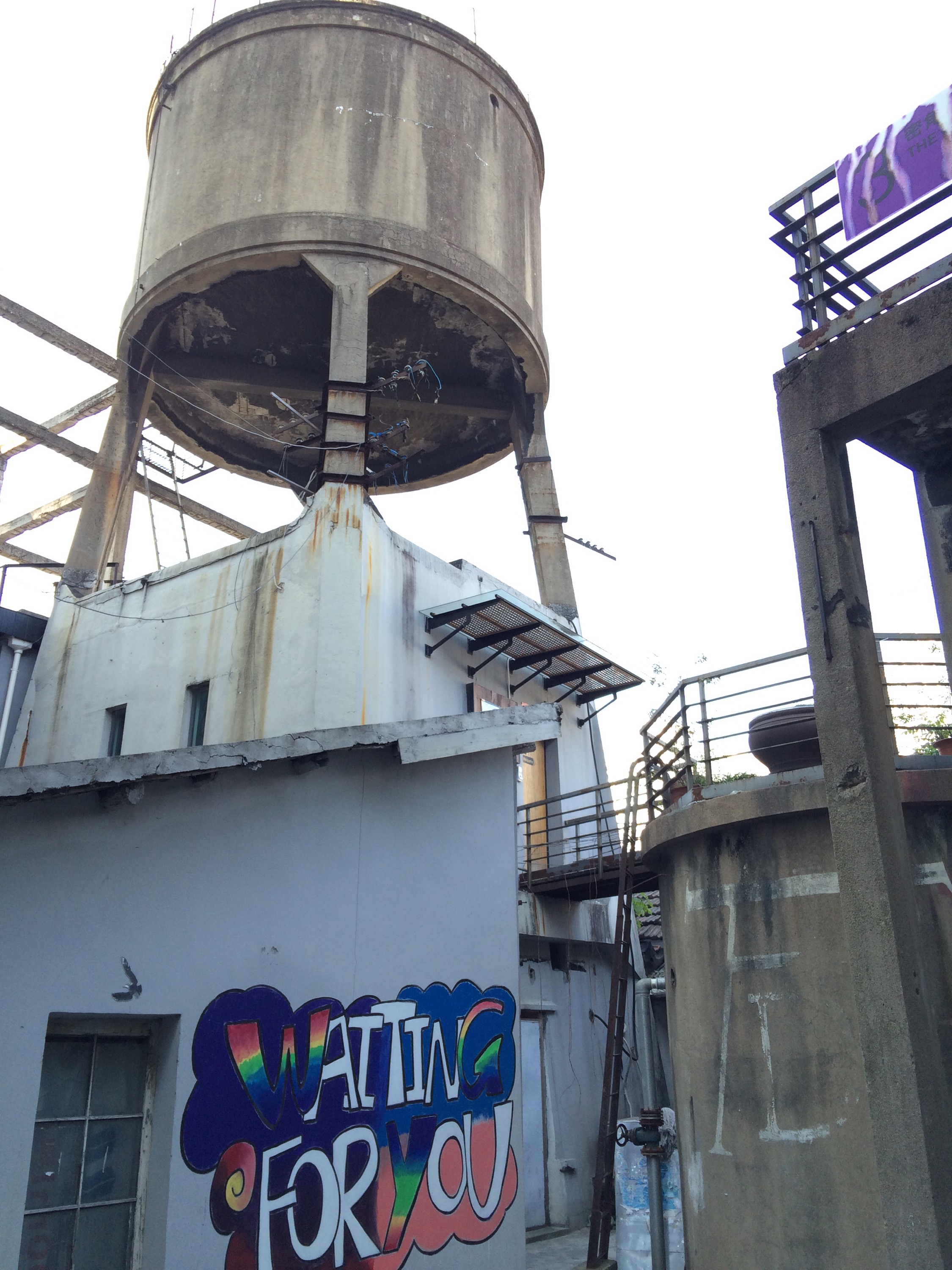 The reclaimed industrial space alternated between official galleries and graffiti art.
The reclaimed industrial space alternated between official galleries and graffiti art.
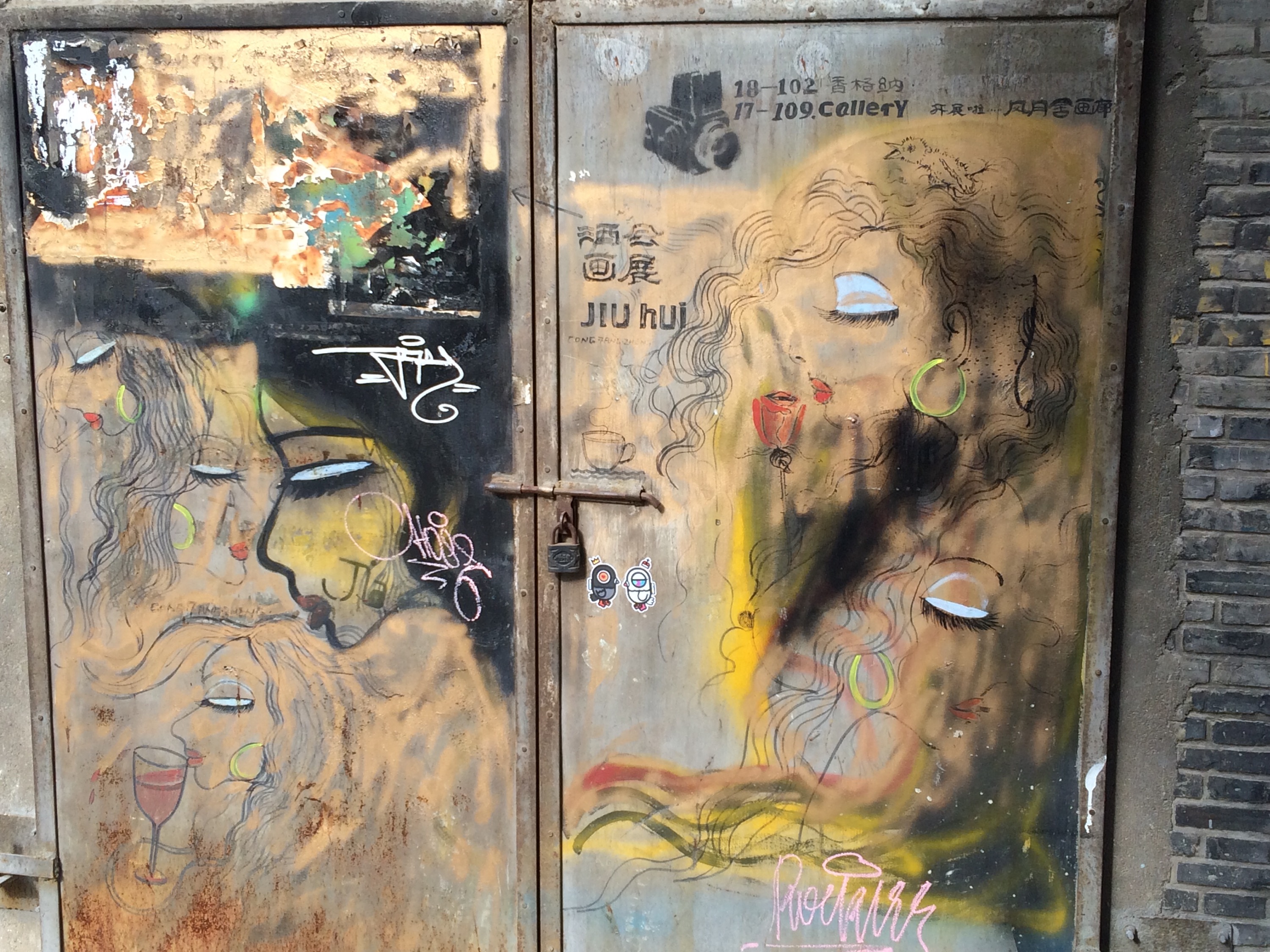
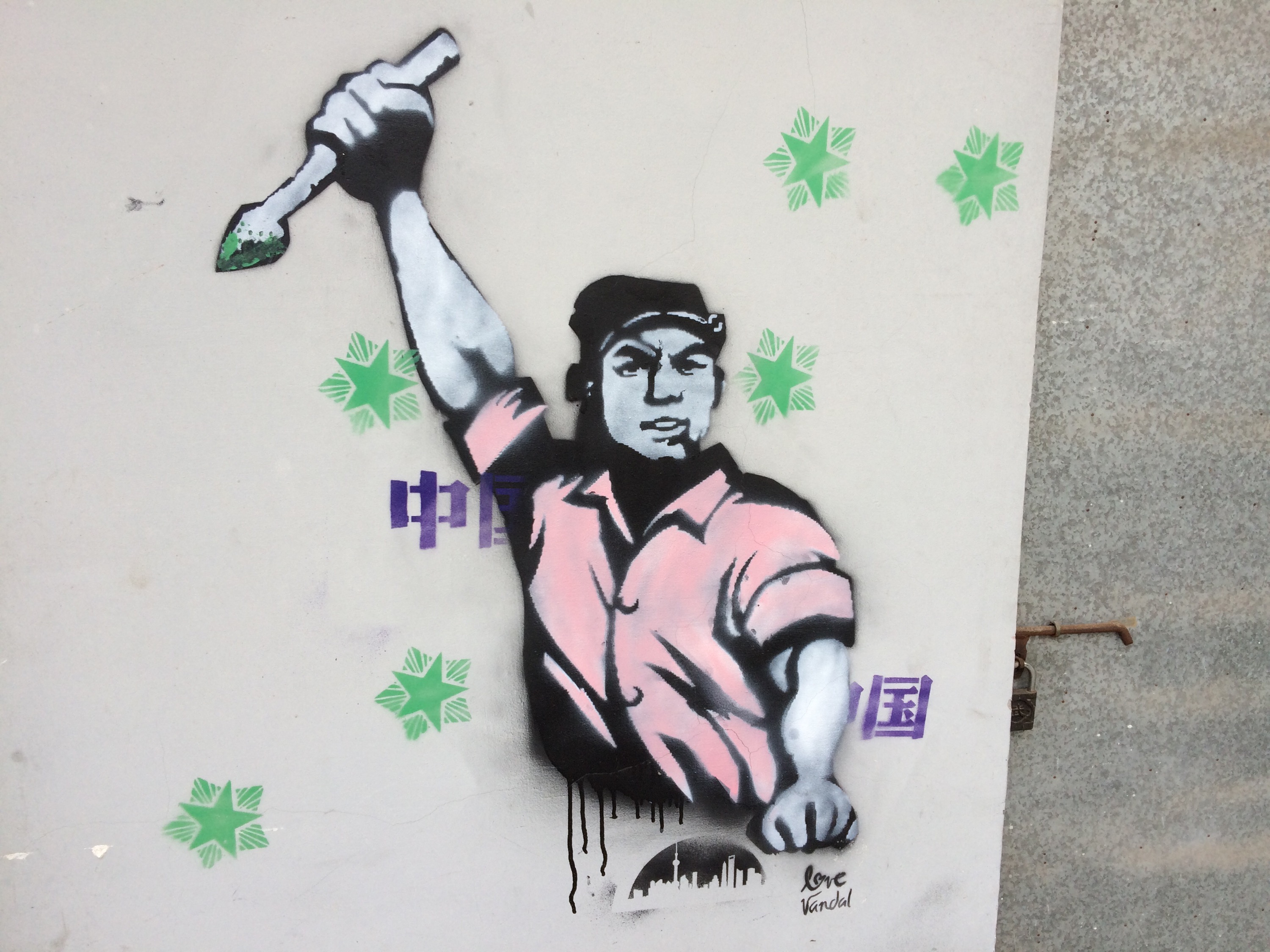
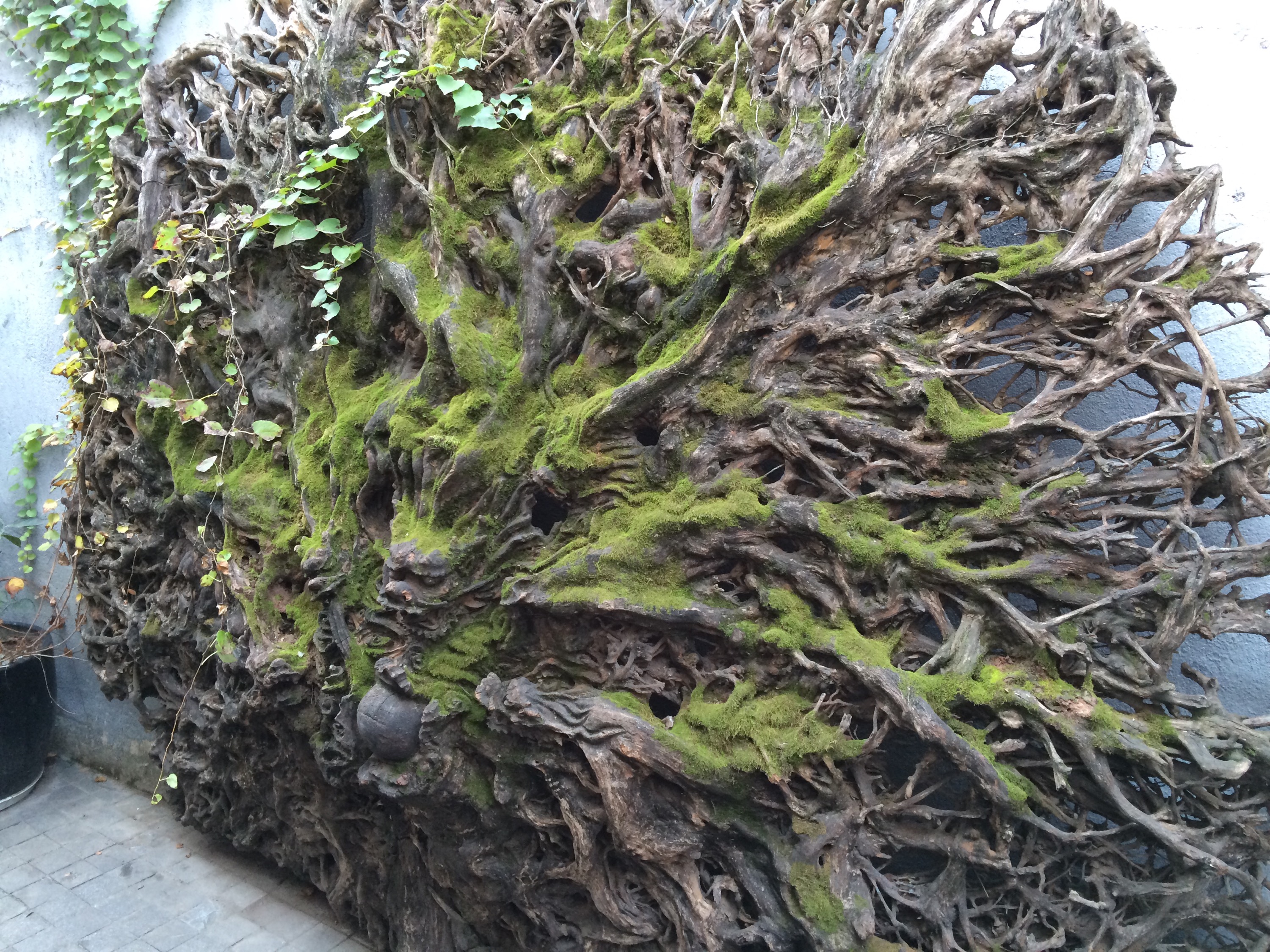
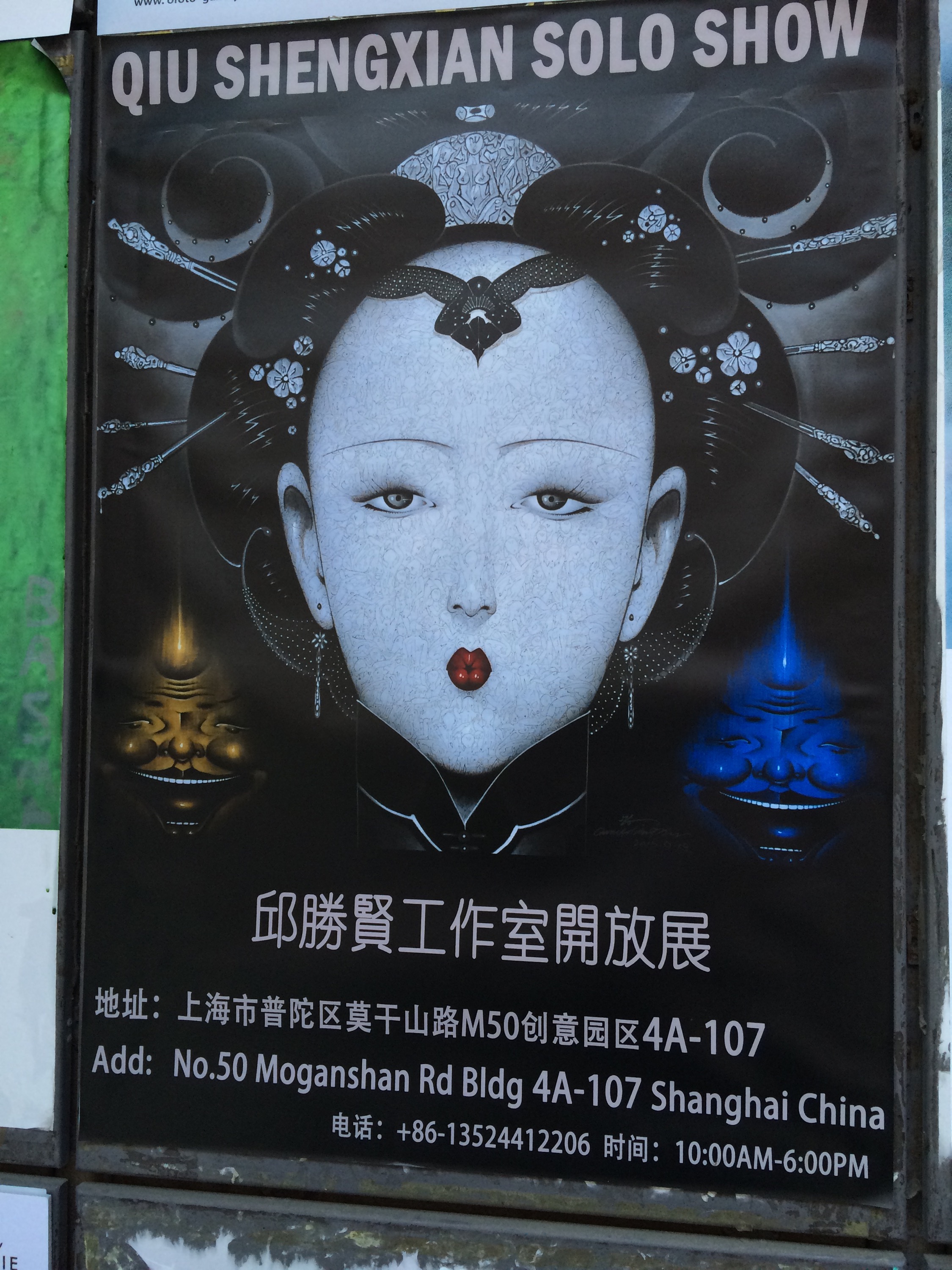 This collection reminded me of something out of Jodorowsky’s Dune.
This collection reminded me of something out of Jodorowsky’s Dune.
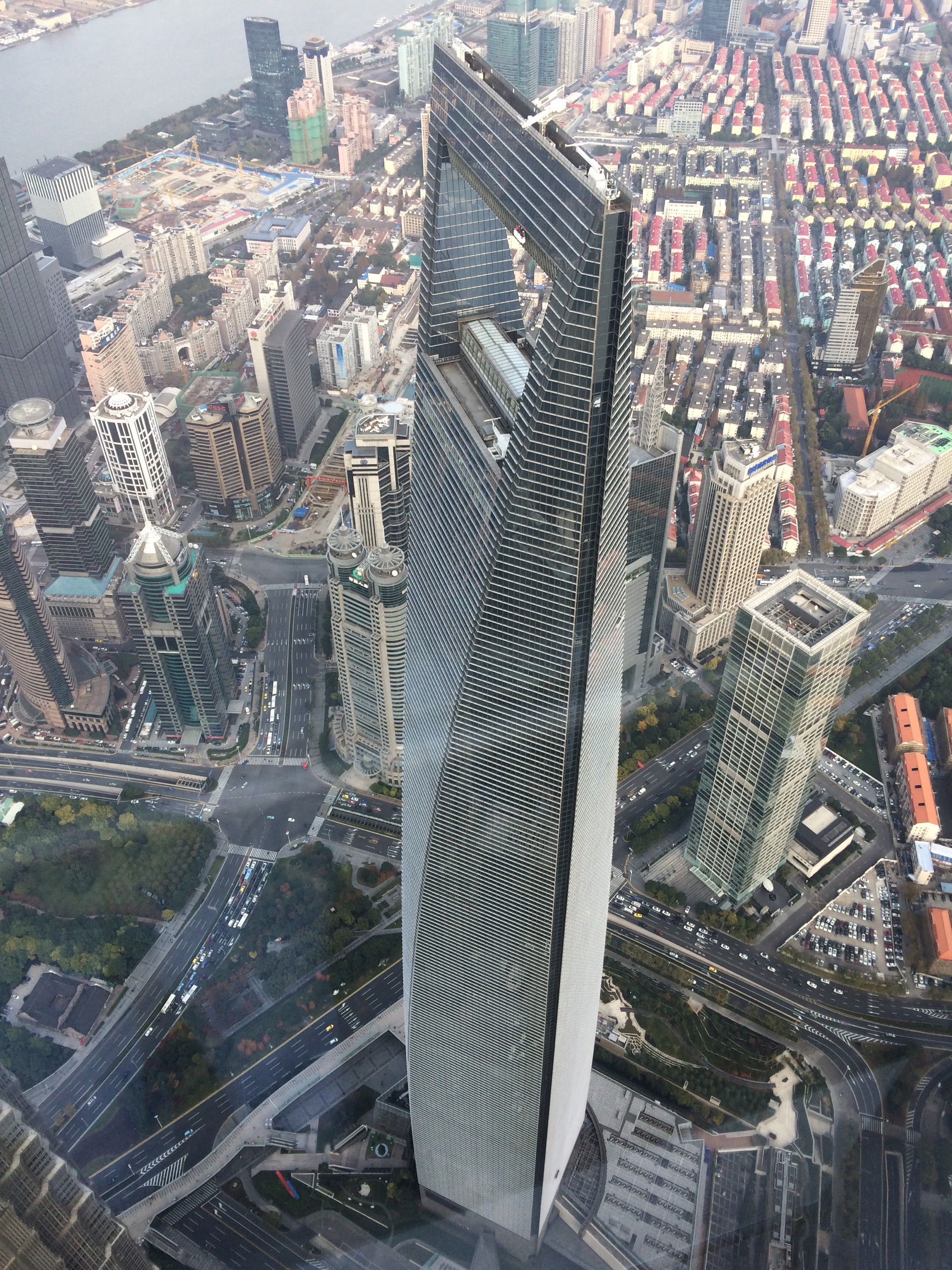 Safely back in Shanghai after Tibet, Debbie & I went to the (recently opened) observation deck at the new Shanghai Tower. Looking down on the “bottle opener building” — which had been the tallest building when I first came to Shanghai back in 2013 — was truly vertiginous.
Safely back in Shanghai after Tibet, Debbie & I went to the (recently opened) observation deck at the new Shanghai Tower. Looking down on the “bottle opener building” — which had been the tallest building when I first came to Shanghai back in 2013 — was truly vertiginous.
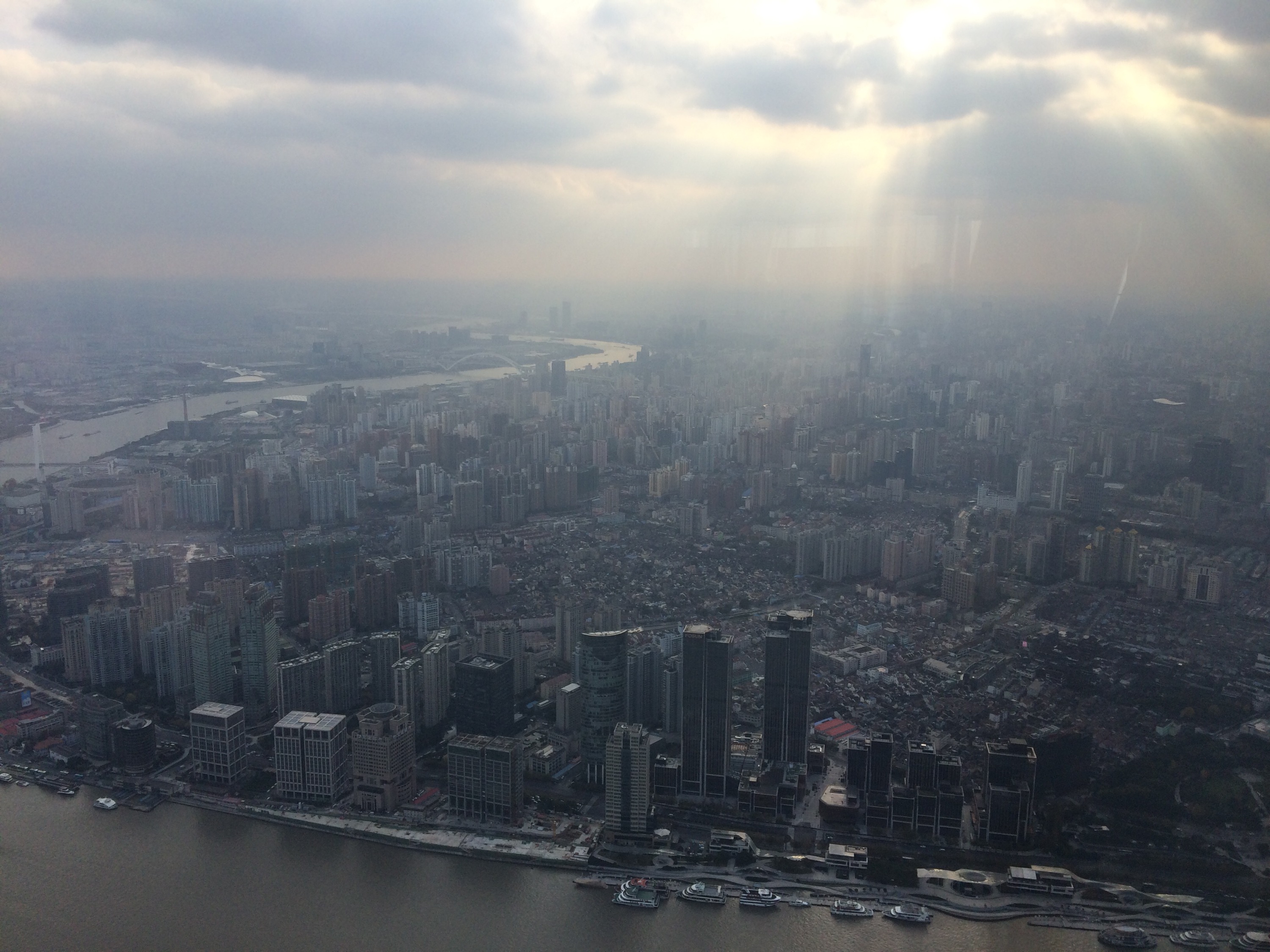 This one shot had better lighting conditions than any I saw in the entire two weeks I spent in Tibet.
This one shot had better lighting conditions than any I saw in the entire two weeks I spent in Tibet.
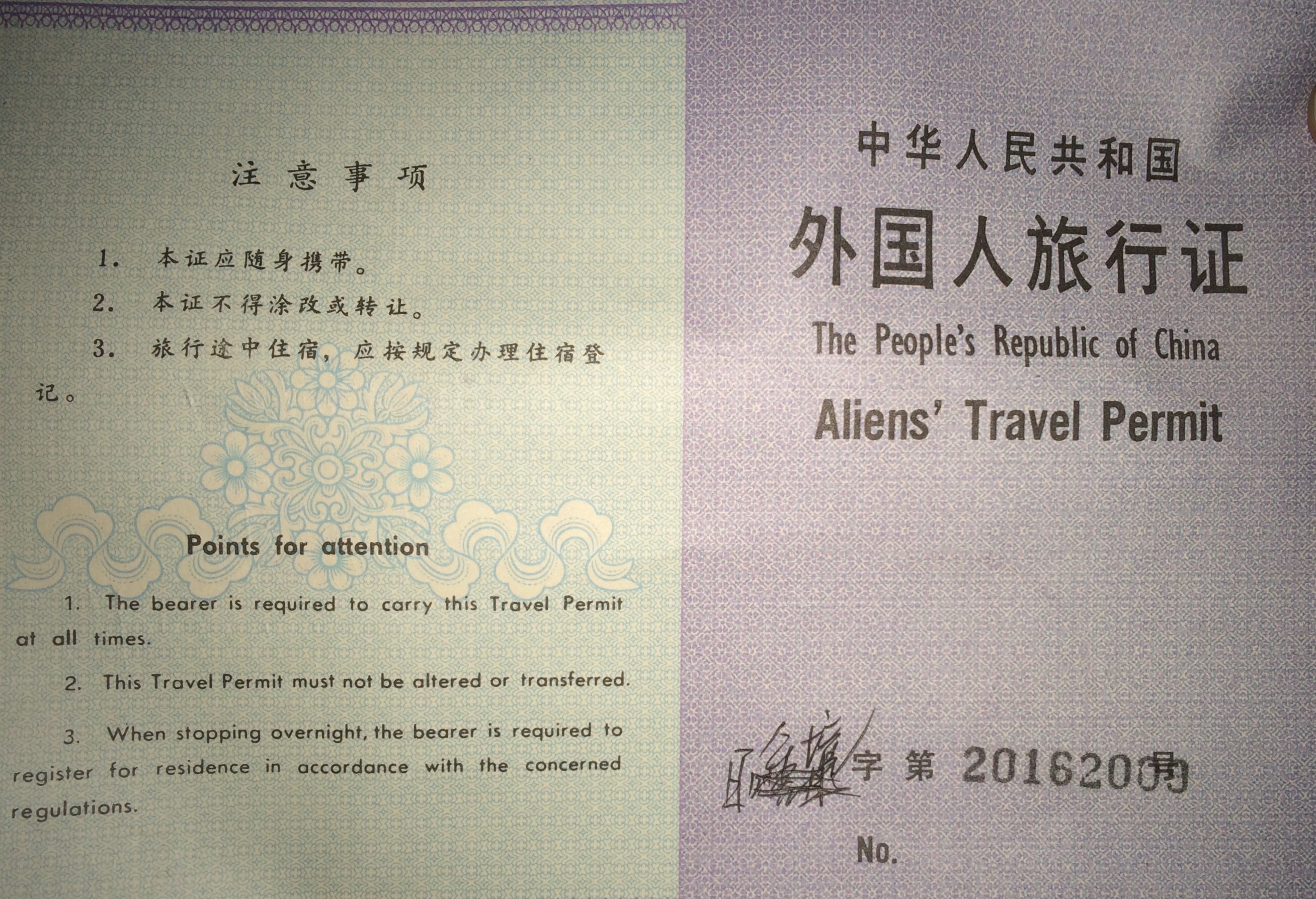 We asked our tour guide if we could keep our Travel Permits, but were told that we weren’t even allowed to photograph them.
We asked our tour guide if we could keep our Travel Permits, but were told that we weren’t even allowed to photograph them.
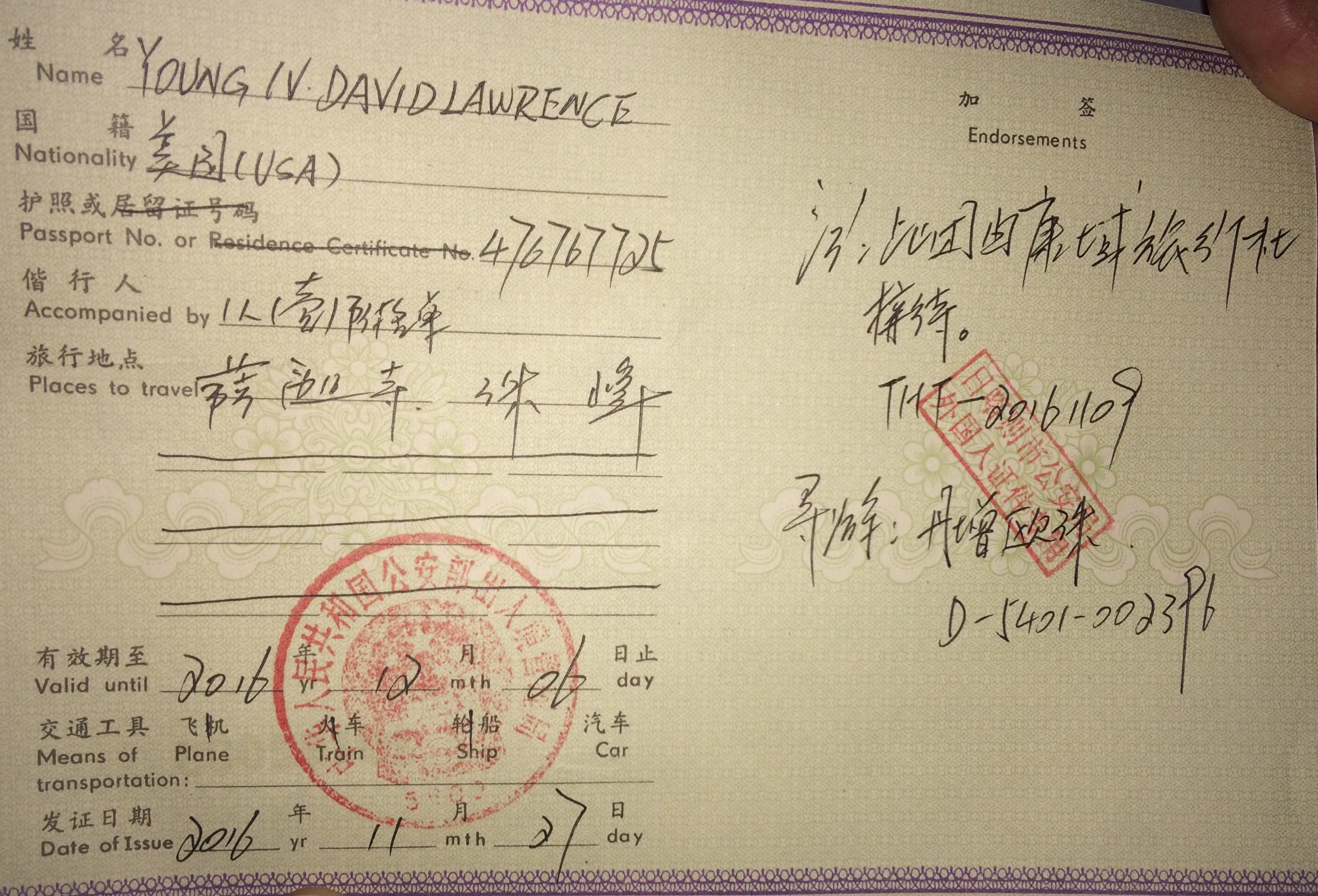
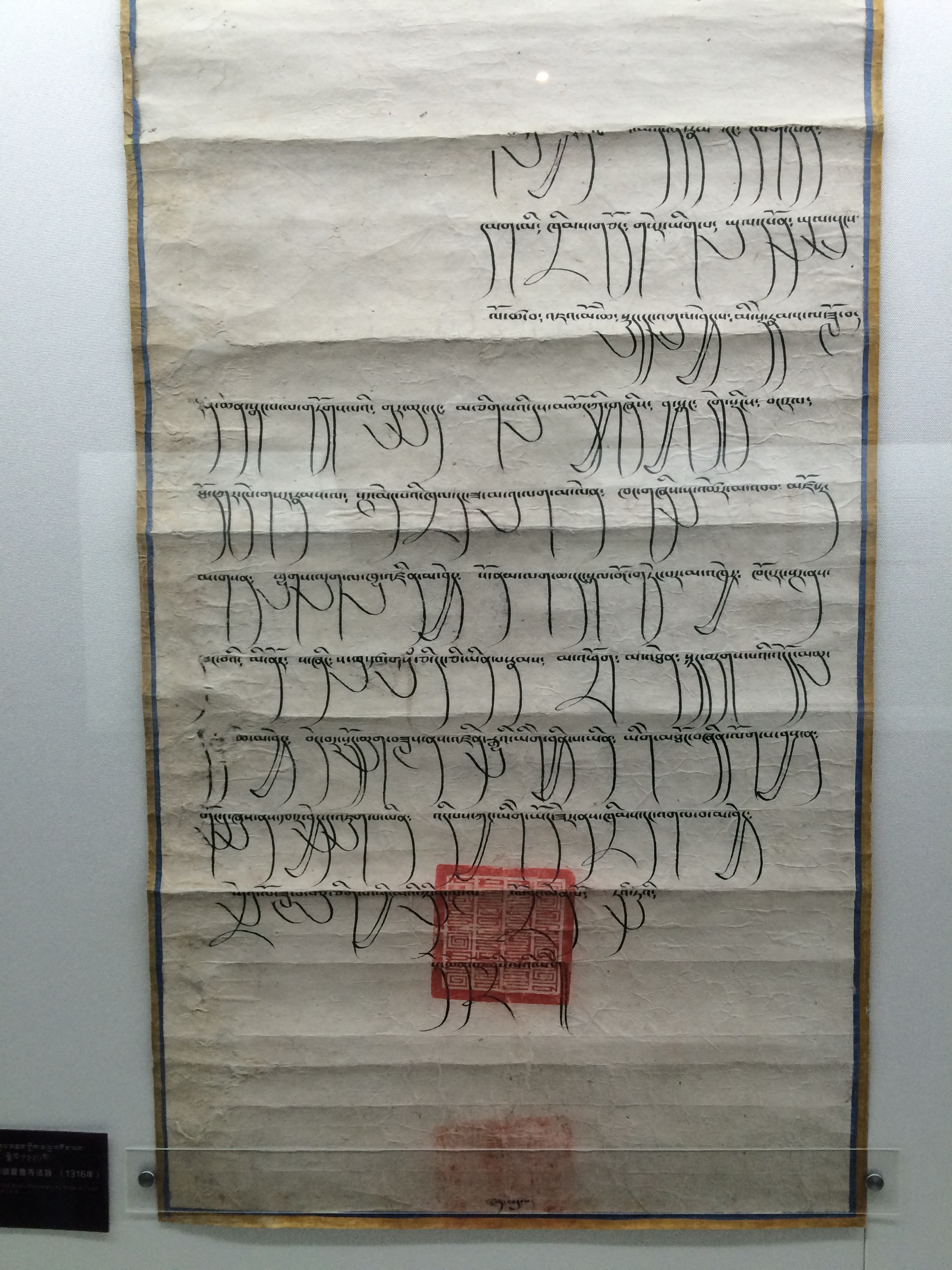 After returning to Lhasa, we visited the Tibet Museum.
After returning to Lhasa, we visited the Tibet Museum.
 The calligraphy and masks were particularly entrancing.
The calligraphy and masks were particularly entrancing. 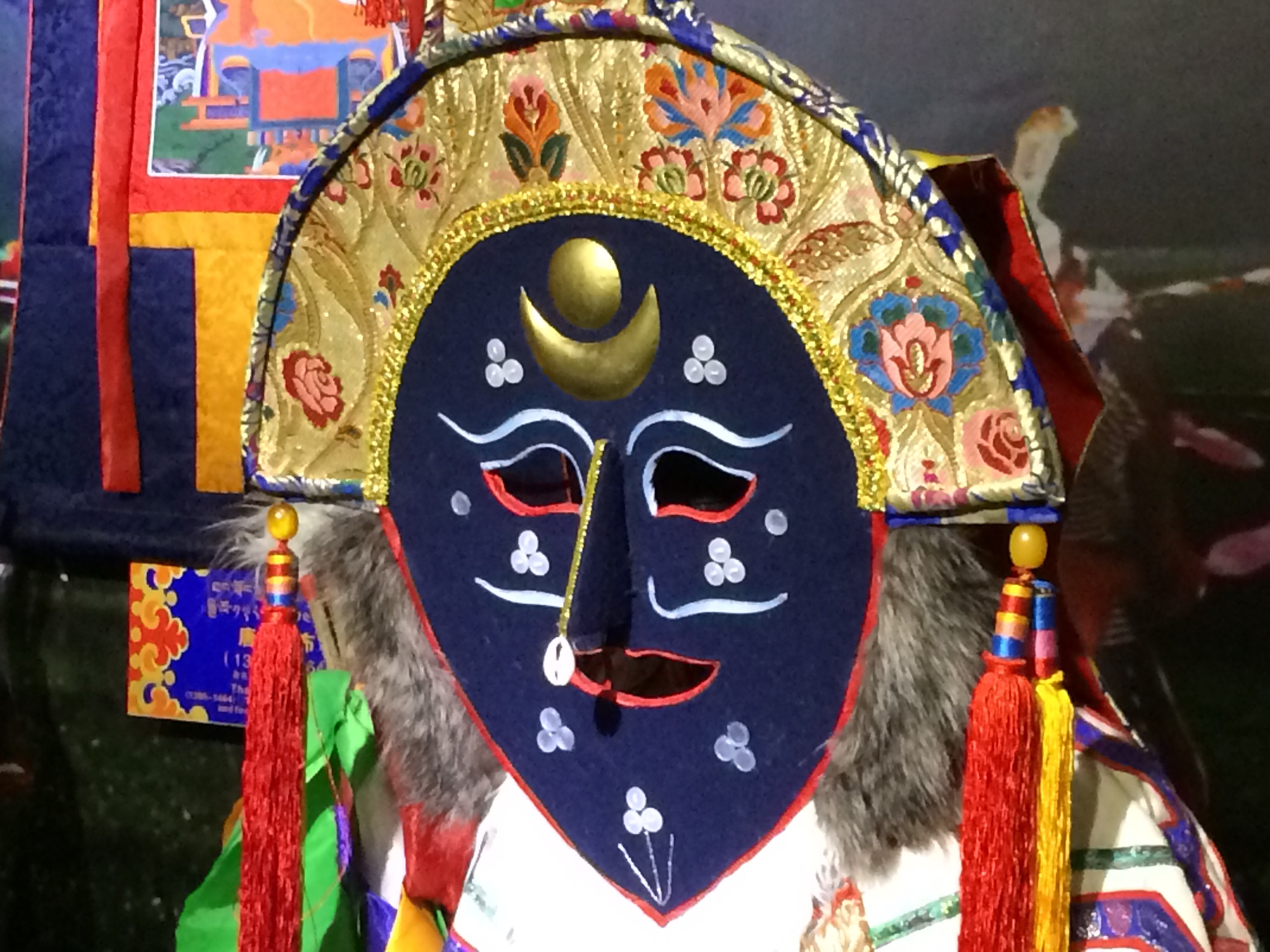 This two-dimensional mask reminded me of something out of Mirrormask.
This two-dimensional mask reminded me of something out of Mirrormask.
The propaganda in some of the exhibits was pretty heavy-handed, emphasizing the historical legitimacy of China’s claim to Tibet, China’s role in confirming lamas, the glory of multi-ethnic unity, etc.
 Driving from Shigatse back to Lhasa along the Yarlung Tsangpo River.
Driving from Shigatse back to Lhasa along the Yarlung Tsangpo River.
 The river originates near Mount Kailash in the west of Tibet where — upstream from where I saw it — it drains the norther section of the Himalayas and carves a canyon slightly longer than the Grand Canyon in Arizona.
The river originates near Mount Kailash in the west of Tibet where — upstream from where I saw it — it drains the norther section of the Himalayas and carves a canyon slightly longer than the Grand Canyon in Arizona. 
 I hate selfies. And I’m bad at them. But here I am in the morning light at Rongbuk Monastery with Mount Everest over my shoulder in the distance.
I hate selfies. And I’m bad at them. But here I am in the morning light at Rongbuk Monastery with Mount Everest over my shoulder in the distance.